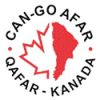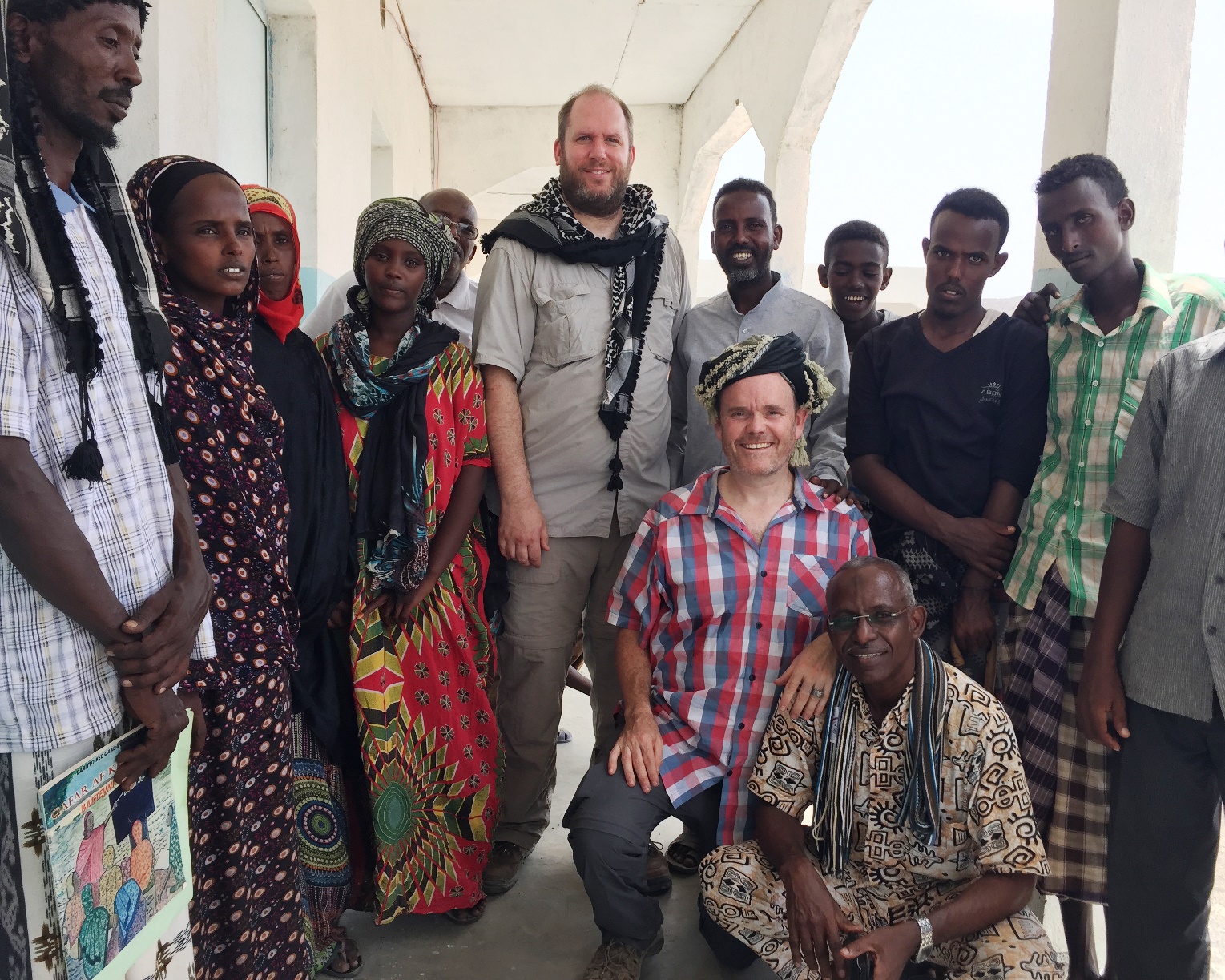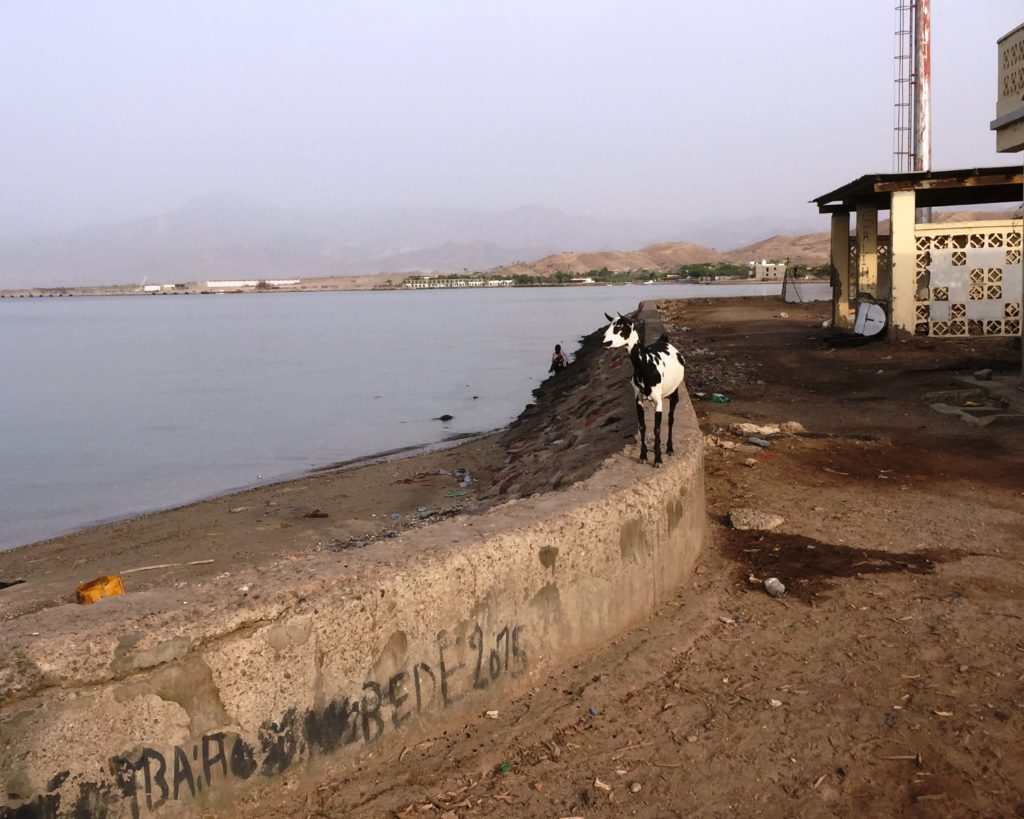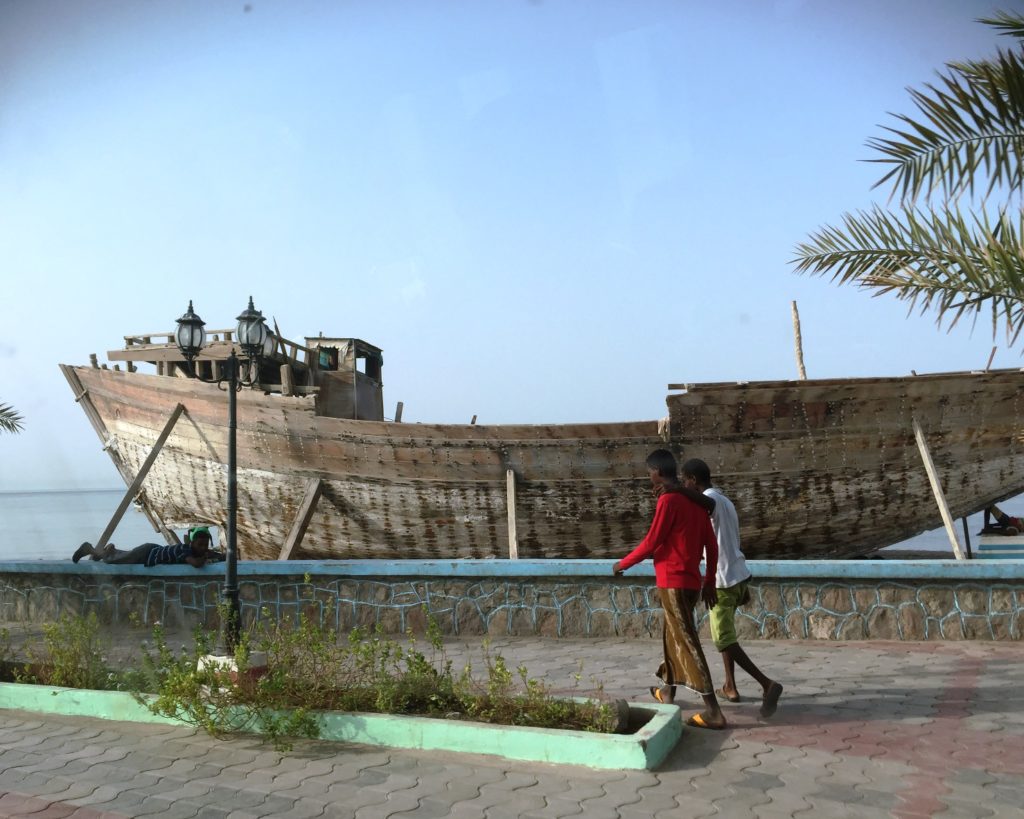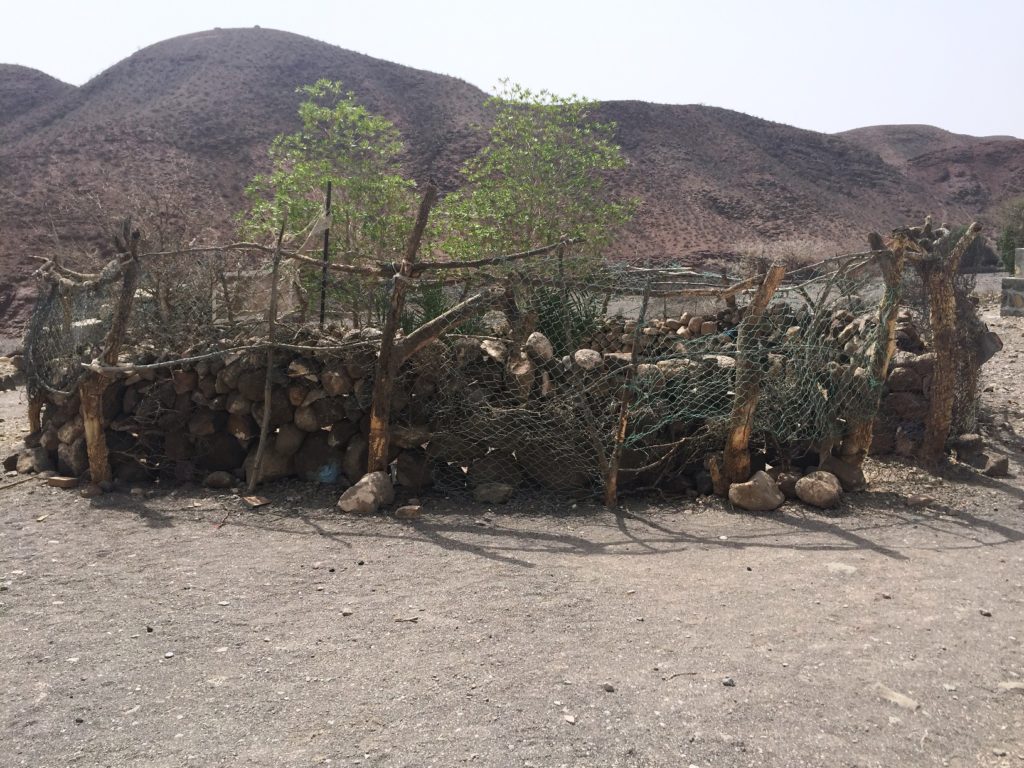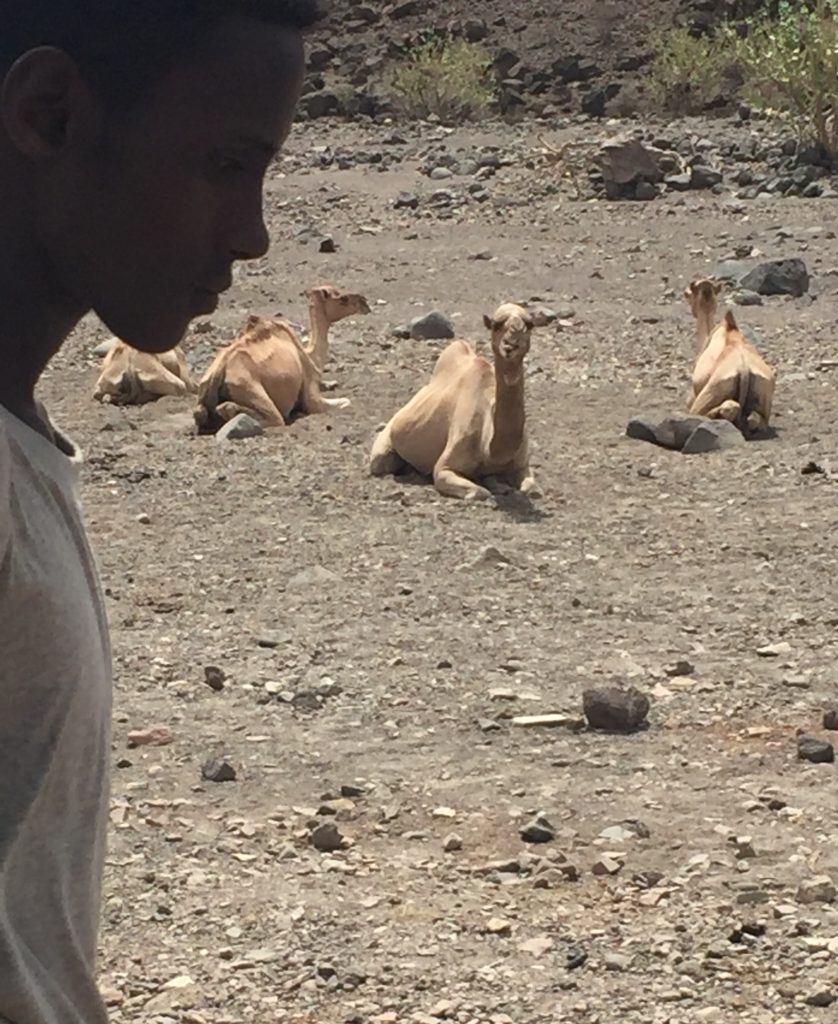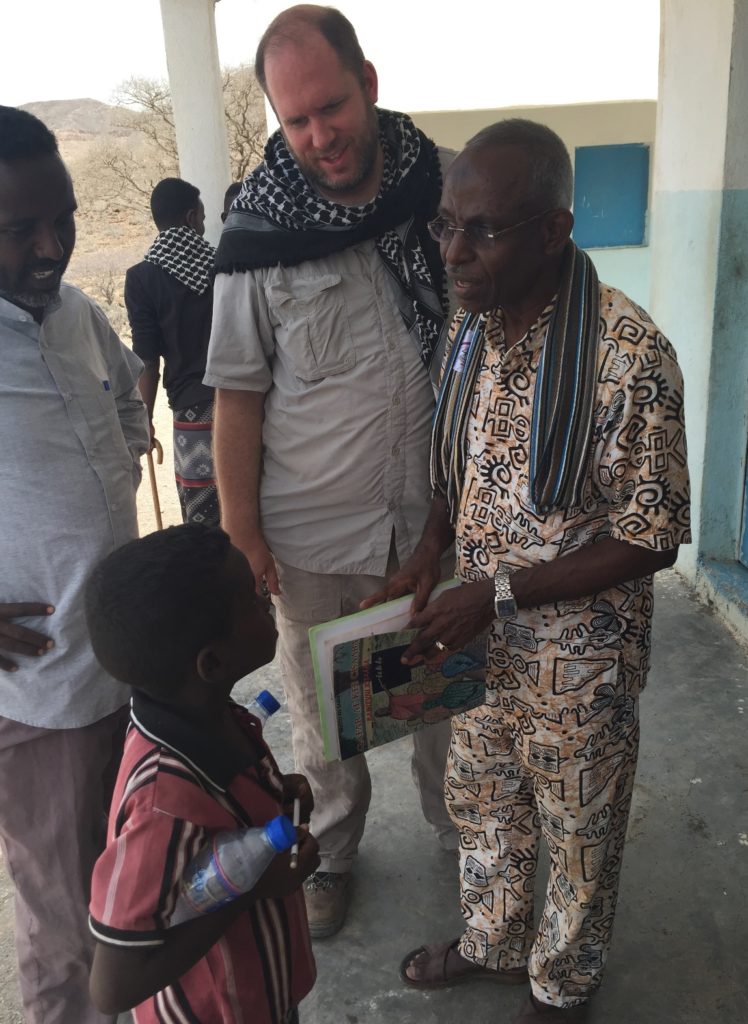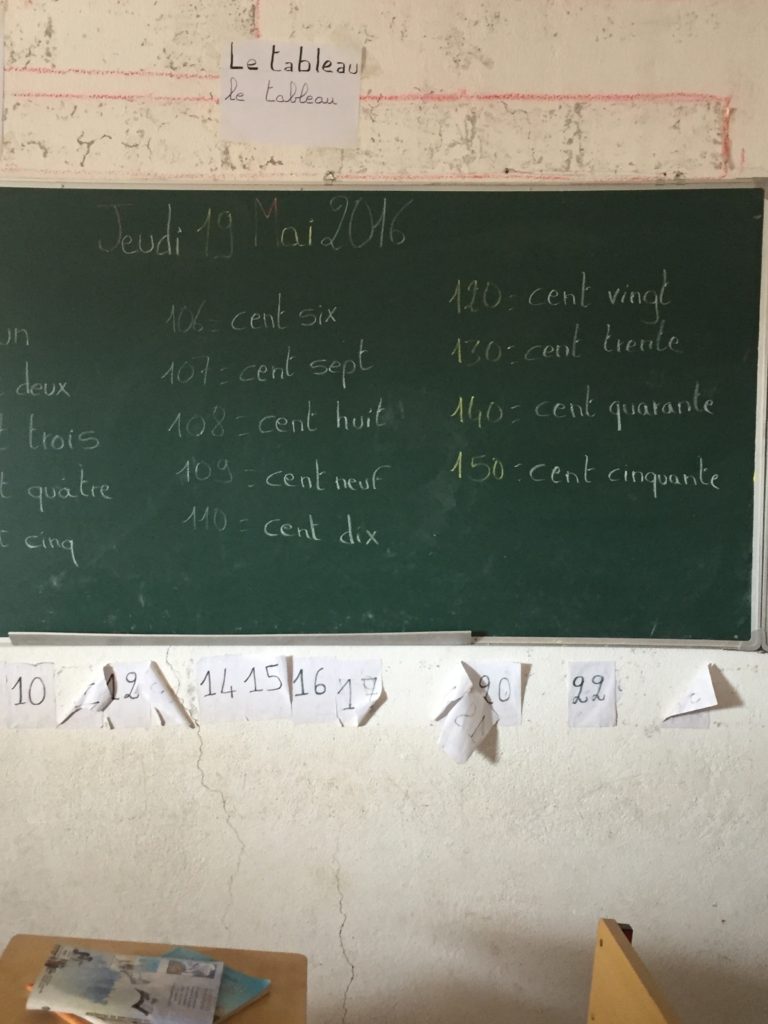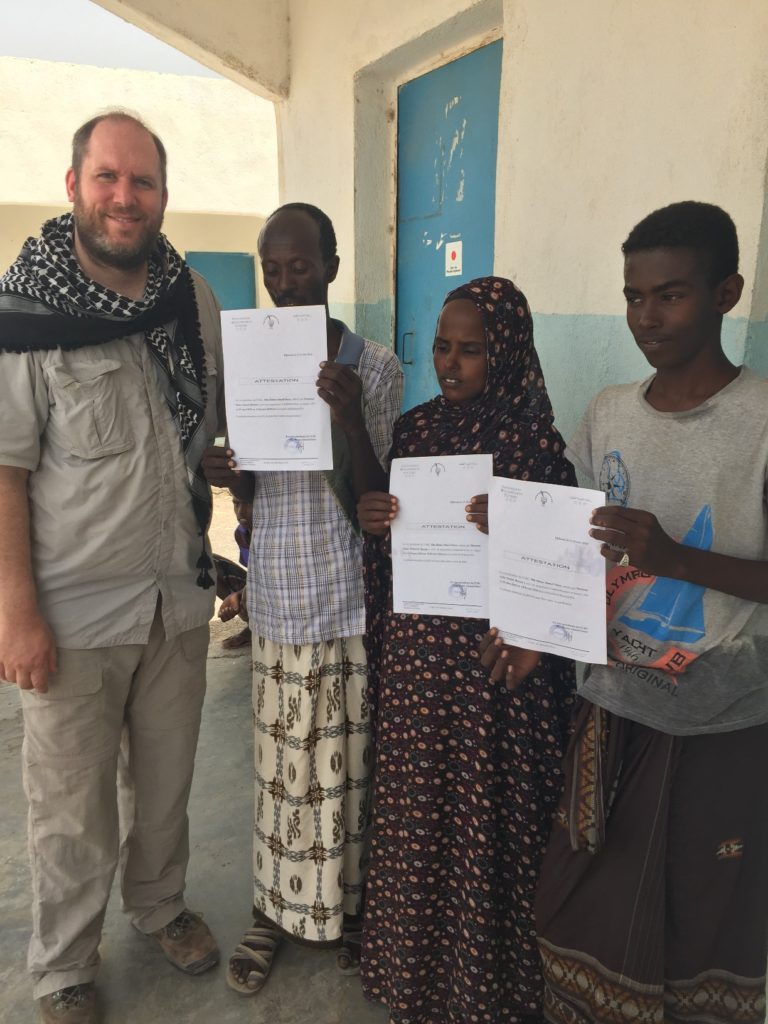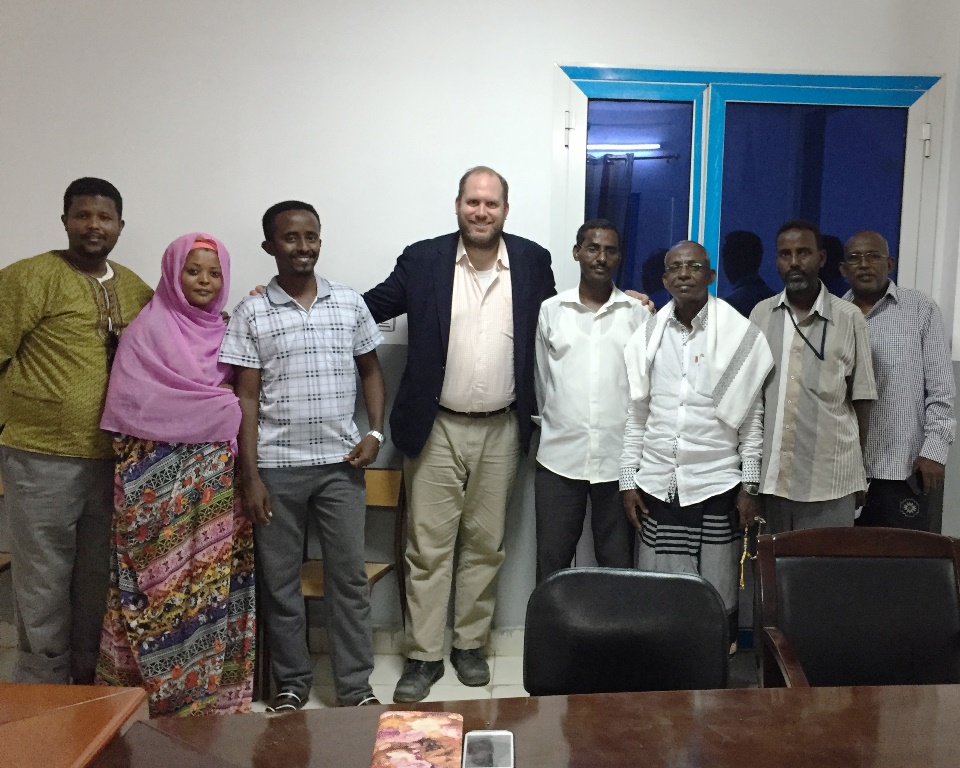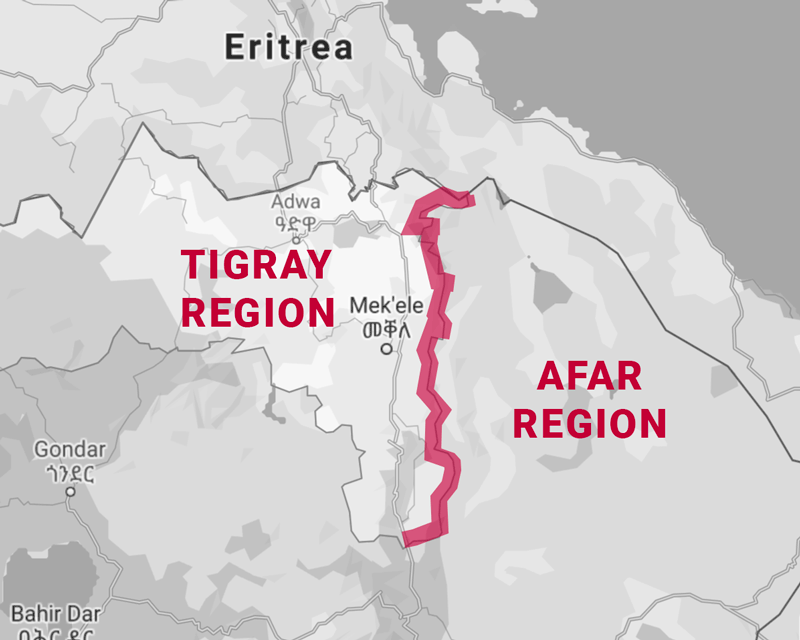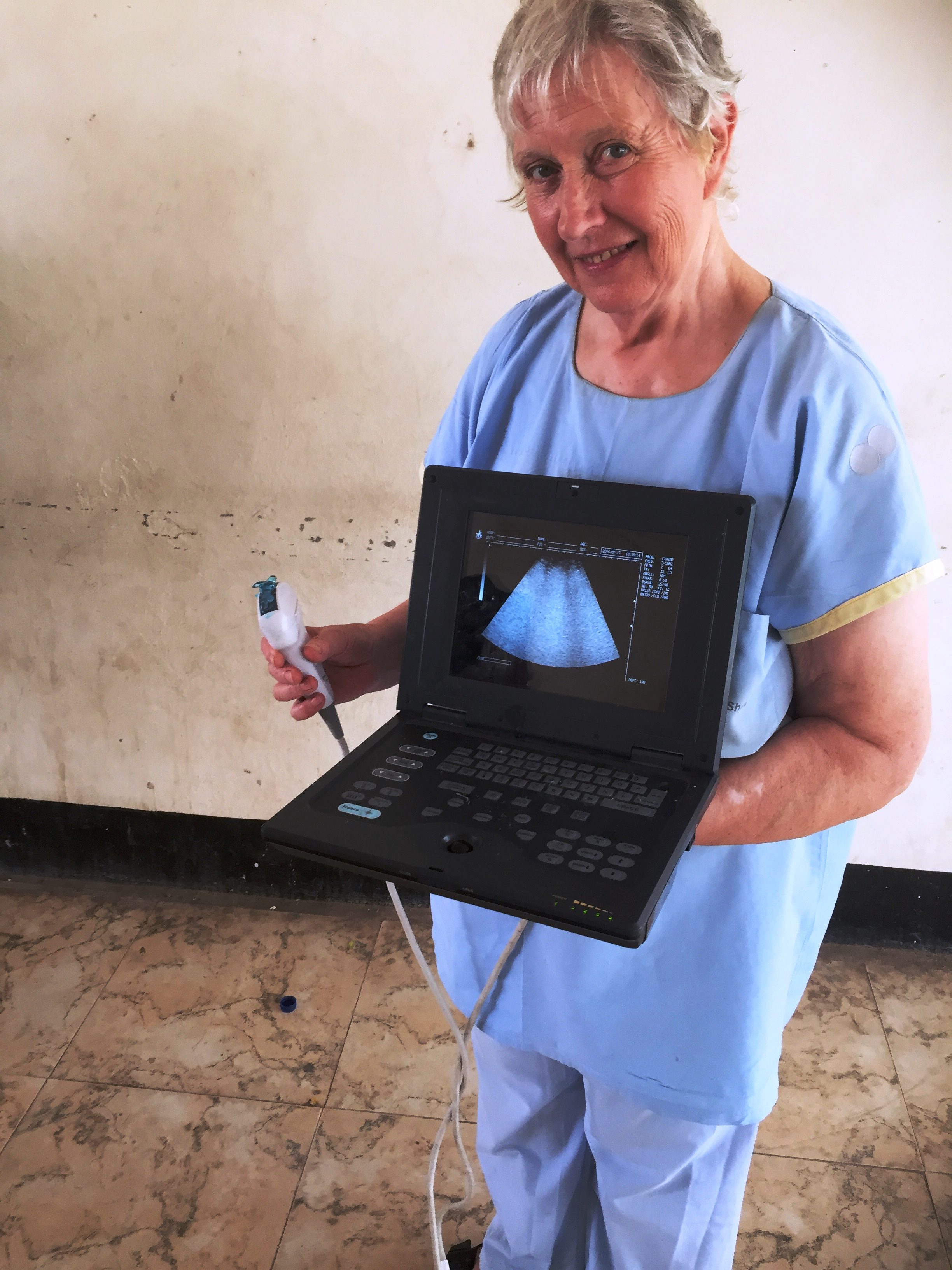After a day-long journey by road from Afar to Djibouti, the Can-Go Afar Mission 12 team had enough time to fit in a quick dinner and sleep before kicking off the final leg of our trip: a visit to our first funded project in the small French- and Arabic-speaking country.
This trip marks the second time the Can-Go Afar Foundation has travelled to Djibouti. The first, in November 2014, was an exploratory visit to seek out potential development partners in the region. After meeting with several groups, we decided to partner with the Union pour le Développement Culturel (UDC), the oldest non-profit dedicated to serving the needs of the Afar in the Horn of Africa.
Our first joint project with UDC, which launched earlier this year, is an Adult Literacy Project in the Obock region, an Afar region on the north-east area of the country that straddles the Gulf of Aden.
To get there we would have to drive approximately 300 kilometres from Djibouti City, circumnavigating the Gulf of Tadjoura, to get to the remote region. Though it seems like a short distance, the route would take us over mountains and directly through the desert which meant it would actually take more than seven hours.
To fit it all in we had to wake up at 3 a.m., which gave us about four hours of shut-eye. After a quick shower and a coffee, our UDC driver picked us up at our hotel, and after a few stops to pick up extra passengers we were on our way.
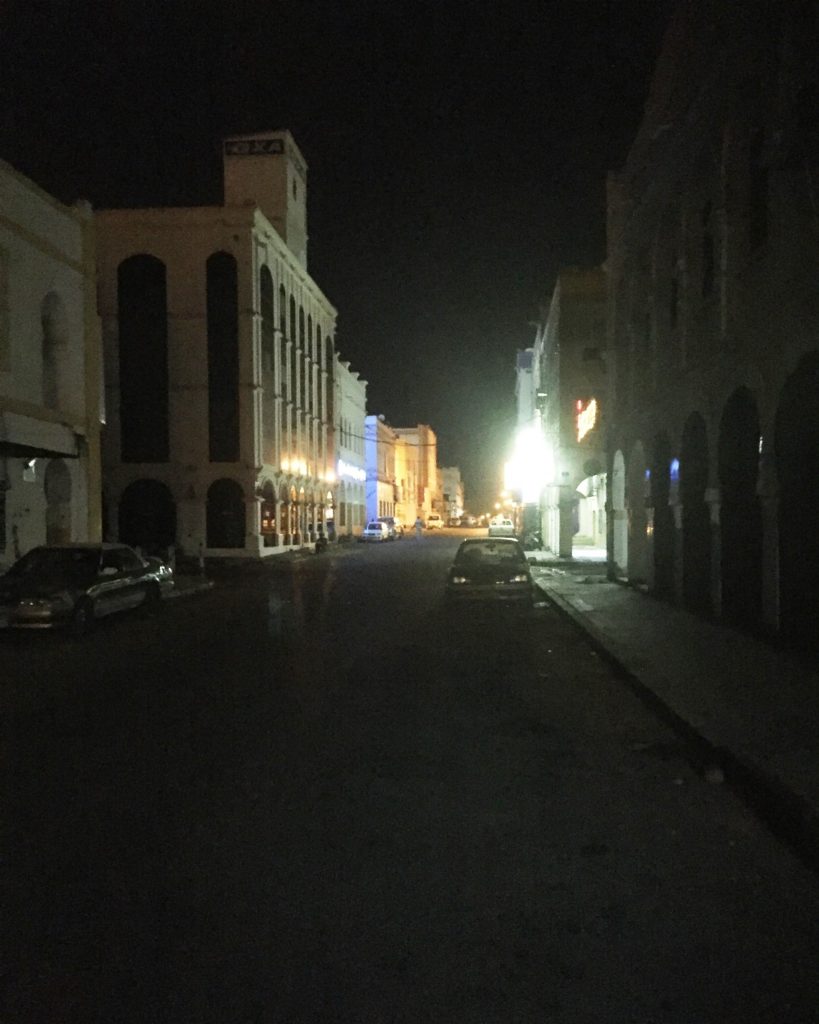
After catching a few hours of sleep, we were awoken by the rising sun just outside of Tadjourah, an Afar port town of about 25,000 people. With a history that stretches back to the Middle Ages, Tadjoura is believed to be the oldest town in Djibouti and is well-known for its palm trees, white-washed buildings, and soft white-sand beaches, earning it the nickname "The White City."
Due to its location, many of the Afar here work as fishermen which is a stark contrast to the land-locked Ethiopian Afar. The differences didn't stop there. As we sat down to a breakfast of fresh fish, croissants, dates and coffee it's easy to mistake Tadjoura with a French or Mediterranean town.
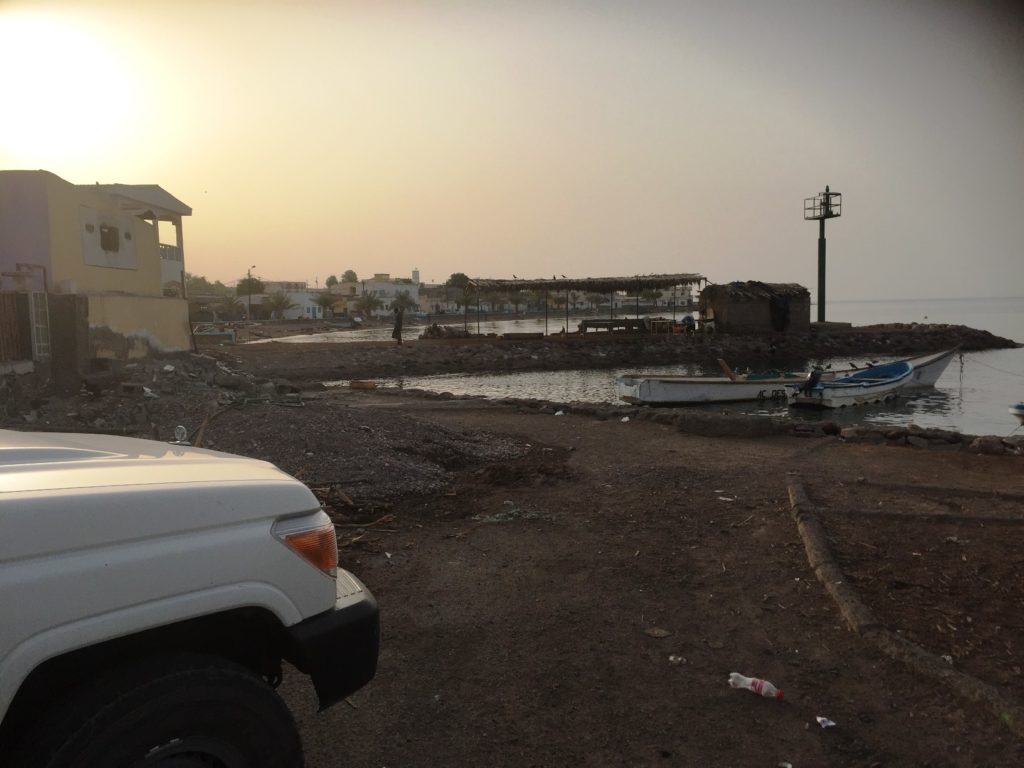
After a delicious breakfast and a lively conversation about Donald and Melania Trump, we piled ourselves back into our Land Cruiser and continued our trek to Obock, the northernmost of three Afar regions in Djibouti.
The Afar make up about 40 percent of Djibouti's population, and along with the Issa, are among its most prominent ethnicities. Though we often talk about the Afar in Ethiopia, the Afar are a major force in Djibouti and are confronted with many of the same challenges.
Here most Afar live in the northern region of Djibouti, which thanks to its location in the upper reaches of the Great Rift Valley is susceptible to drought, volcanic eruptions and other natural disasters According to the UDC, the areas of Obock that we were visiting had not seen any significant rain fall in 10 years, which had forced many Afar families to cease their nomadic ways and settle in areas that had pooled water.
In response, UDC is actively supporting Afar communities in the Obock region by building schools, homes, and health facilities near to where they have settled.
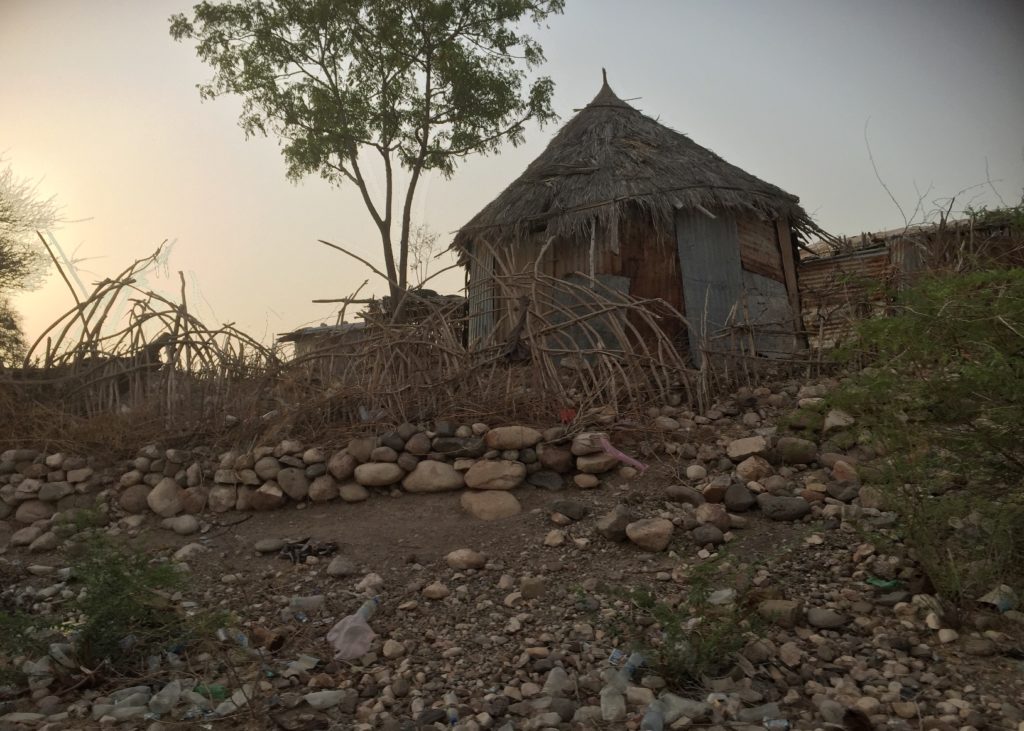
As we progressed closer to our destination, the lush green of Tadjourah and Dikhil gave way to a sun-parched landscape of rock and scant foliage. Pretty soon we pass a Yemeni refugee camp and our driver takes a sharp turn, and pulls off the highway onto a dirt road. "That's a tourist resort compared to what you're going to see" says one of our fellow travelers, gesturing towards the camp.
It didn't take long to see the impact of drought first-hand. The only green to be found was on the upper branches of larger trees, and at some points entire trees had dried up and fallen out of the ground for lack of water. Remaining outposts of foliage were protected from livestock by makeshift fences of thorns.
"If you come back next year, these will all be dead," says a UDC elder.
The Afar men, women and children all live within walking distance of the well, which is the main source of water in the area. Camels, goats and sheep linger nearby, as Afar men and women gather the water to bring back to their households in the hills nearby.
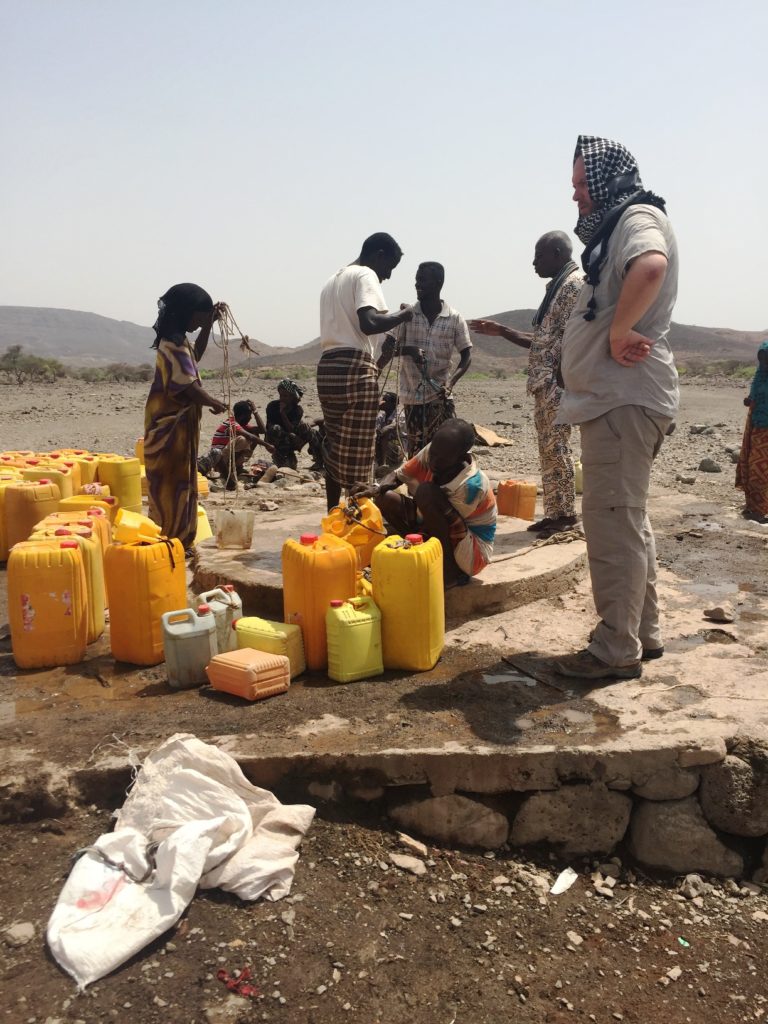
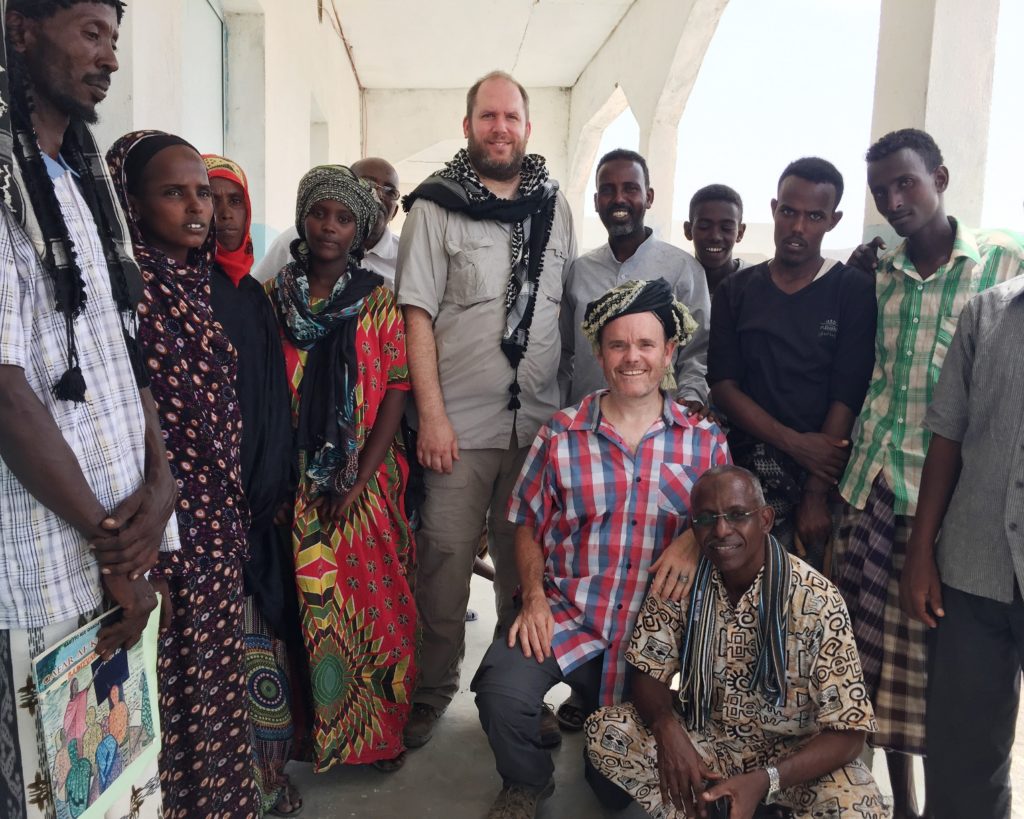
After we were done, we stopped by Obock city (another port town) for lunch, before doubling back to Djibouti city at around 8 p.m. All told, we were on the road for nearly 17 hours. An exhausting day for sure, but well worth it to witness first-hand the good work that Can-Go Afar is supporting in this beautiful country.
Effective partnerships such as our one with UDC in Djibouti are critical to a humanitarian organization like Can-Go Afar, which is committed to helping issues of health and well-being, and alleviating the effects of abject poverty in the Afar region.
One of the ways we do this is by innovative fundraising efforts, like the Can-Go Afar Livestock Challenge our first crowd-funding campaign on GoFundMe.com. Once we learned that more than 2 million Afar goats and sheep died of thirst and starvation as a result of the 2015/2016 drought in the Horn of Africa, we knew we needed to take fast action.
With more than 200,000 Afar families currently in immediate need, The Can-Go Afar Livestock Challenge is hoping to raise $50,000 to help restock 1,000 goats and sheep that were lost during the drought. It’s straight-forward: $50 buys a goat, $100 will buy a sheep, and $500 buys enough goats for an Afar household of 12 people.
 If we reach our goal, 100 of the neediest Afar households will receive a full complement of livestock and will be returned to their pre-drought conditions.
If we reach our goal, 100 of the neediest Afar households will receive a full complement of livestock and will be returned to their pre-drought conditions.
It couldn’t be simpler: Buy a goat (or a sheep), save a life.
To date we have raised nearly $10,000. This is a great start, and we thank all of our supporters — but we need to keep the momentum going if we want to make a real and effective change for the better.
We encourage you to check out our project at GoFundMe.com/CanGoAfar and pledge to help the Afar — the oldest indigenous tribe on earth — get back on their feet.
If you would prefer to donate in a more traditional way, please go to go to our PayPal page or fill out our Donation Form on our website.
Thanks, Inshalla, and Gaxxa Gey!
